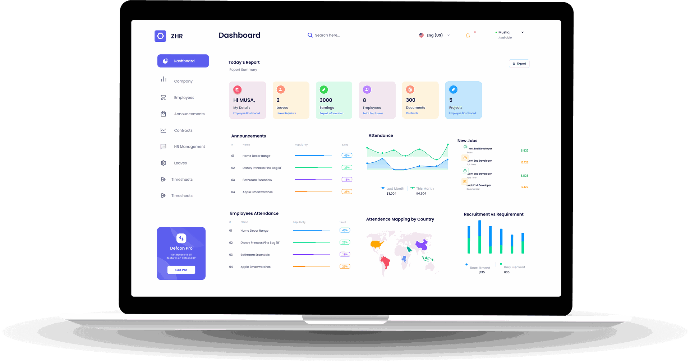Comprehensive ERP System
In the dynamic world of modern business, efficiency, integration, and data-driven decision-making are key to success. This is where Enterprise Resource Planning (ERP) systems come into play. An ERP system is a comprehensive software solution that integrates various business processes into a single unified platform. By breaking down silos and fostering collaboration, ERPs empower businesses to operate seamlessly.

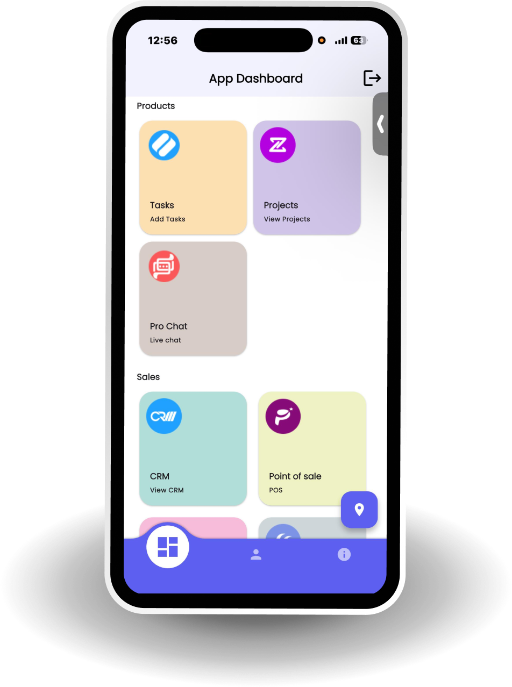
What is an ERP System?
An ERP system is software that centralizes and streamlines core business operations, such as finance, supply chain, human resources, customer relationship management, and more. By consolidating data and workflows, it enhances visibility, efficiency, and decision-making across the organization.
Modern ERP systems are cloud-based, providing real-time access to business insights from anywhere. With built-in analytics, automation, and security features, ERP solutions enable companies to optimize workflows, reduce costs, and maintain compliance with industry regulations. Whether for small businesses or large enterprises, ERP systems empower organizations to scale, adapt, and stay competitive in an evolving digital landscape.
----------- Features
Key Features
of Defcon ERP
Financial Management
📒 General Ledger, Accounts Payable, and Accounts Receivable
📊 Budgeting and Forecasting
📈 Financial Reporting and Analytics
🧾 Tax Management and Compliance
🌍 Multi-Currency and Multi-Company Support
Human Resource Management (HRM)
👥 Employee Records Management
💰 Payroll Processing
📝 Recruitment and Onboarding
📊 Performance Management
⏰ Time and Attendance Tracking
Supply Chain Management (SCM)
📦 Inventory Management
🤝 Procurement and Vendor Management
📈 Demand Forecasting
🏬 Warehouse Management
🚚 Logistics and Shipment Tracking
Customer Relationship Management (CRM)
🎯 Lead and Opportunity Management
📇 Customer Data and Interaction Tracking
🔄 Sales Pipeline Management
📢 Marketing Automation
💬 Customer Support and Case Management
Manufacturing and Production Management
🧾 Bill of Materials (BOM)
🗓️ Production Scheduling
✅ Quality Control
🛠️ Maintenance Management
📡 Real-Time Production Monitoring
Project Management
📌 Task and Milestone Tracking
👥 Resource Allocation
💰 Budget and Cost Control
🤝 Collaboration Tools
📑 Progress Reporting
Streamlined Operations
Achieve greater efficiency by integrating all business processes into a unified system. An ERP solution eliminates silos, automates repetitive tasks, and ensures seamless collaboration between departments. With real-time data access, businesses can optimize workflows, reduce delays, and enhance productivity. From inventory management to financial tracking, streamlined operations lead to better decision-making and improved overall performance.
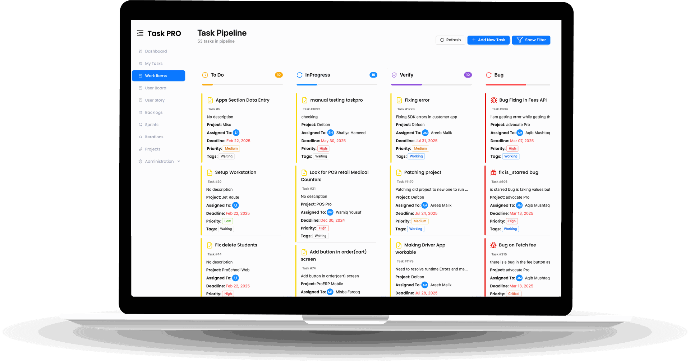
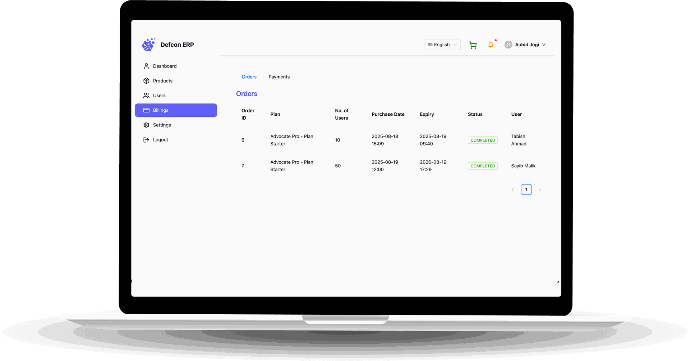
Improved Customer Satisfaction
Deliver exceptional customer experiences with seamless service and personalized interactions. An ERP system consolidates information across all departments, providing a single source of truth for strategic planning. With automated reporting, AI-driven forecasting, and customizable dashboards, businesses can make informed decisions faster, minimize risks, and identify growth opportunities with precision..
Enhanced
Decision-Making
Gain actionable insights with real-time data and advanced analytics. An ERP system integrates customer data, streamlines order management, and enhances communication across departments. With real-time tracking, automated responses, and predictive analytics, businesses can proactively address customer needs, reduce response times, and build long-lasting relationships.
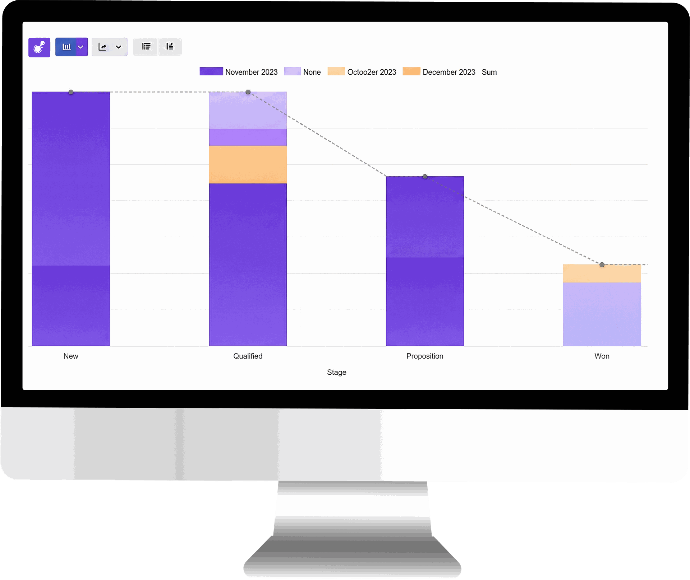
-------- More Features
Analytics and Business Intelligence (BI)
- Dashboards and Visualizations
- Key Performance Indicators (KPIs) Monitoring
- Predictive Analytics
- Drill-Down Reporting
- Customizable Reports
E-commerce and Sales Order Management
- Online Store Integration
- Order Processing and Fulfillment
- Pricing and Discount Management
- Payment Gateway Integration
- Customer Feedback and Returns Management
Compliance and Risk Management
- Regulatory Compliance Tracking
- Audit Trail Management
- Risk Assessment and Mitigation Tools
- Data Privacy and Security Features
Integration & Customization
- API and Third-Party Integrations
- Workflow Automation
- User Role and Permissions Management
- Multi-Language Support
- Customizable Modules and Dashboards
Centralized Data Management
An ERP system consolidates all business data into a single, unified platform, eliminating data silos and ensuring seamless communication across departments.
Real-Time Reporting & Analytics
Gain real-time insights into business performance with customizable dashboards, advanced reporting tools, and data analytics for informed decision-making.
Who Needs an ERP System?
Challenges of ERP Implementation
Small Businesses: To streamline operations and support growth.
Medium-Sized Enterprises: To integrate diverse functions and improve productivity.
Large Corporations: To manage complex operations and scale efficiently.
Non-Profit Organizations: To optimize resource allocation and reporting.
High Initial Costs: Mitigated by cloud-based ERP solutions with subscription models.
Complex Deployment: Addressed by choosing user-friendly interfaces and expert implementation partners.
Change Management: Training and communication can ease the transition for employees
Future of ERP Systems
The future of ERP systems is driven by advancements in artificial intelligence, cloud computing, and data analytics. AI-powered automation will enhance efficiency by reducing manual tasks and providing predictive insights for better decision-making. Cloud-based ERP solutions will offer greater flexibility, scalability, and real-time accessibility, enabling businesses to operate seamlessly from anywhere. Integration with IoT and big data will allow for deeper insights, optimizing operations across industries. As security and compliance become more critical, ERP systems will evolve with enhanced cybersecurity measures and regulatory adherence. The next generation of ERP will be smarter, more agile, and tailored to the dynamic needs of businesses in a digital-first world.
Comprehensive ERP System: Empowering Business Efficiency
Unlock the full potential of your business with our all-in-one Enterprise Resource Planning (ERP) system. Designed to integrate and streamline operations across departments—finance, HR, supply chain, CRM, and more—our ERP solution provides real-time data, automation, and powerful analytics to enhance productivity, reduce costs, and support strategic decision-making.
Whether you're a small business or a large enterprise, our scalable and customizable ERP system helps you stay agile, compliant, and customer-focused. With features like centralized data management, predictive analytics, regulatory compliance tools, and seamless integration, it's the smart choice for organizations ready to grow in today’s digital landscape.
